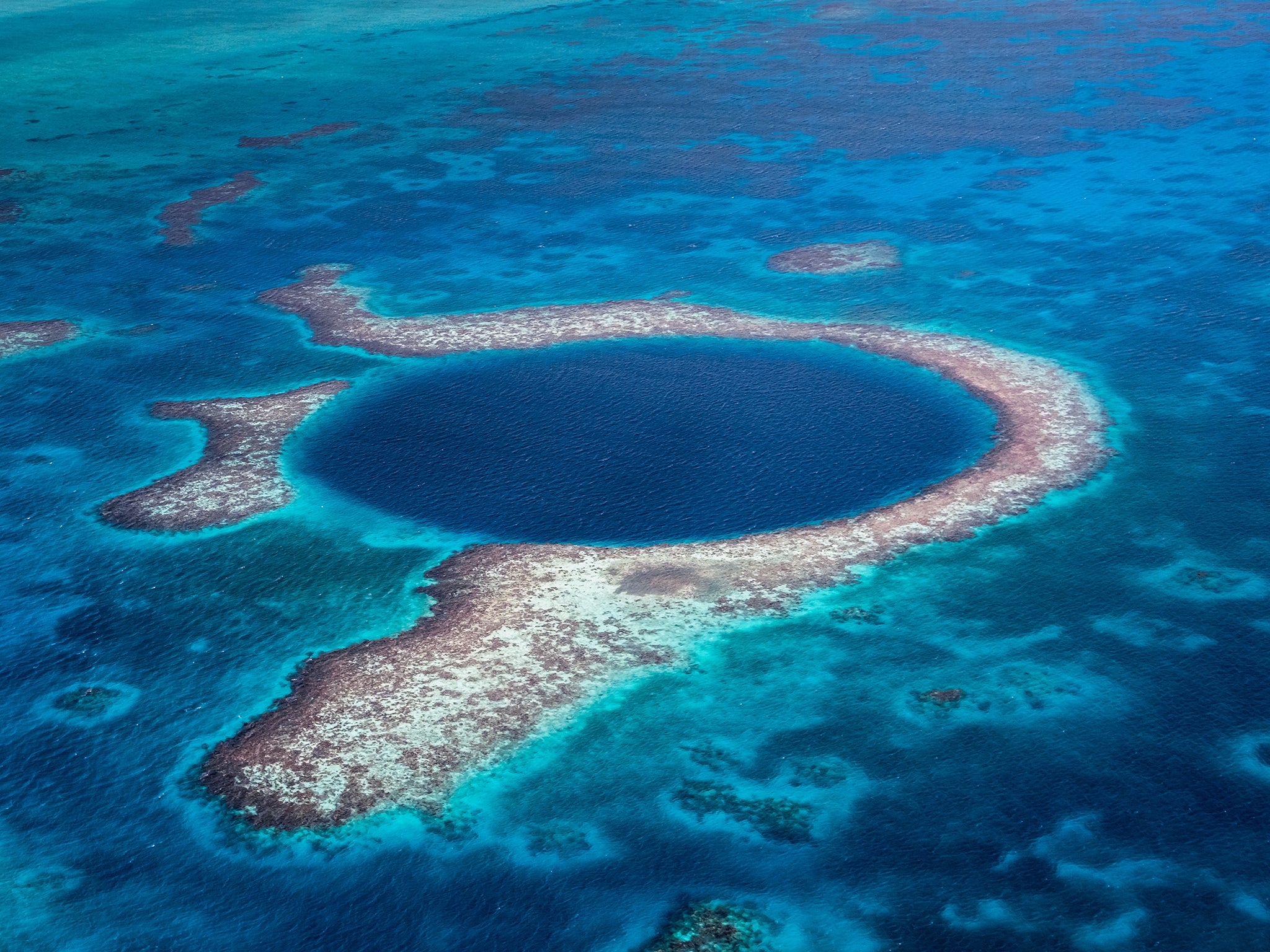Belize Barrier Reef: Unesco removes largest coral reef system in Northern Hemisphere from endangered list
Experts caution 'long-term danger to world’s reefs from climate change remains real'

It was a drop of good news about the world’s oceans: The Belize Barrier Reef, the largest coral reef system in the Northern Hemisphere, has been removed from the United Nations list of endangered world heritage sites.
Unesco, the world body’s educational, scientific and cultural agency, says its heritage committee voted Tuesday to remove the reef from its list of threatened sites because it no longer faced immediate danger from development.
“In the last two years, especially in the last year, the government of Belize really has made a transformational shift,” says Fanny Douvere, the coordinator of the marine program at Unesco’s World Heritage Centre.
UN officials initially cited “mangrove cutting and excessive development” as the main concern when the reef was added to the List of World Heritage in Danger in 2009. They have also expressed concern about oil exploration. Since then, the Belize government has imposed a moratorium on oil exploration around the reef and implemented protections for coastal mangrove forests.
Experts cautioned, though, that the long-term danger to the world’s reefs from climate change remains real.
“The primary threats are all still there,” says John Bruno, a marine ecologist at the University of North Carolina at Chapel Hill. “The big one, of course, is ocean warming.”
The world’s largest coral ecosystem, the Great Barrier Reef, has been hit hard by rising temperatures in recent years. An underwater heatwave in Australian waters two years ago spurred a die-off of coral so severe that scientists say that reef will never look the same again.
Scientists say they have observed signs of coral bleaching on the Belize reef. Bleaching occurs when unusually warm water causes the corals to lose plant-like organisms that help keep them alive. In 2015 and 2016, almost a quarter of the corals off the Belizean coast were affected by bleaching, according to a report by the Healthy Reefs for Healthy People Initiative, an organisation that monitors reefs.
If most of the world’s coral reefs die, as scientists fear is increasingly likely, some of the richest and most colourful life in the ocean could be lost, along with income from reef tourism. In poorer countries, lives are at stake: hundreds of millions of people get their protein primarily from reef fish, and a reduction of that food supply could become a humanitarian crisis.
Australia successfully demanded that a chapter detailing damage to the Great Barrier Reef be cut from a 2016 Unesco report on threatened heritage sites so that it would not affect tourism.
The Belize Barrier Reef system, which extends roughly 200 miles along the eastern coast of the Yucatan Peninsula, was designated a Unesco World Heritage Site in 1996. The system is made up of a series of coral reefs, cays and islands, many of which are covered with mangroves.
Despite covering less than a thousandth of the ocean floor, coral reefs are home to more than a quarter of marine fish species. The state of reefs is considered an important indicator of the overall health of the seas.
The New York Times
Join our commenting forum
Join thought-provoking conversations, follow other Independent readers and see their replies
Comments
Bookmark popover
Removed from bookmarks